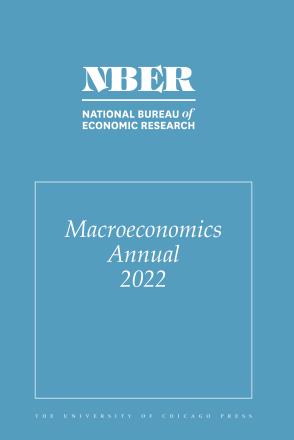Excess Savings and Twin Deficits: The Transmission of Fiscal Stimulus in Open Economies
Published Date
Copyright 2023
ISBN 9780226828213
DOI 10.1086/723586

You may be able to download this chapter for free via the Document Object Identifier.
We study the effects of debt-financed fiscal transfers in a general equilibrium, heterogeneous-agent model of the world economy. In the long run, increases in government debt anywhere raise the world interest rate and increase private wealth everywhere. In the short run, a country with a larger-than-average fiscal deficit experiences both a large increase in private savings (“excess savings”) and a small but persistent current account deficit (a slow-motion “twin deficit”). These patterns are consistent with the evolution of the world’s balance of payments since the beginning of the COVID pandemic.
-
Copy CitationRishabh Aggarwal, Adrien Auclert, Matthew Rognlie, and Ludwig Straub, NBER Macroeconomics Annual 2022, volume 37 (University of Chicago Press, 2022), chap. 5, https://www.nber.org/books-and-chapters/nber-macroeconomics-annual-2022-volume-37/excess-savings-and-twin-deficits-transmission-fiscal-stimulus-open-economies.Download Citation
-
Related
Published From Paper
-
Working Paper
We study the effects of debt-financed fiscal transfers in a general equilibrium, heterogeneous-agent model of the...


